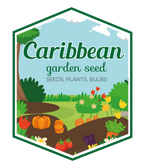
JUTE GREENS - Summer Spinach (Live Plants ) Asian Vegetable,
- Get free shipping to lower 48 states on orders $54.95+ (Most Items), excluding live plants, plant bulbs, and black plastic nursery crate.
- Most orders are processed by the next day !
- Safe Seed Pledge
- Select your desired size and/or color from the available options.
Jute mallow, a heat-tolerant spinach substitute known as Egyptian Spinach, thrives in warm environments where traditional spinach struggles. Harvest young leaves for raw consumption or mature foliage for cooking. The young pods offer a culinary experience reminiscent of petite okra, providing versatility in various dishes.
Molokhia (Corchorus olitorius) goes by several names, including jute mallow, Jews’ mallow and, more commonly, Egyptian spinach.
This Middle Eastern super-green, known as Jew's mallow or Egyptian spinach, has a high vitamin and mineral content. This “food of kings” dates back to the time of the pharaohs, when an Egyptian king drank it in soup to recover from an illness. Today, it’s one of the most widely eaten vegetables in Egypt. In the Philippines, it is called "saluyot" and is widely grown for the leaves.
Native to the Middle East, it’s a tasty, edible green that grows quickly and reliably and can be cut again and again throughout the growing season.
Molokhia Cultivation What is Egyptian spinach? It’s a plant with a long history, and molokhia cultivation goes back to the times of the Pharaohs. Today, it’s still one of the most popular vegetables in Egyptian cooking.
It’s very fast growing, usually ready to harvest about 60 days after planting. If it goes uncut, it can reach as tall as 6 feet in height. It likes hot weather and produces its leafy greens throughout the summer. When temperatures begin to drop in the fall, leaf production slows and the plant bolts, producing small, bright yellow flowers. The flowers are then replaced by long, thin seed pods that can be harvested when they naturally dry and brown on the stem.
LET OUR CUSTOMER SPEAK FOR US

![[Seeds] - Caribbeangardenseed](http://caribbeangardenseed.com/cdn/shop/files/gift-card-gift-card-1_1024x1024_dfa857db-9150-4315-a362-7f0bb3fb9c47_60x28.png?v=1722895789)








